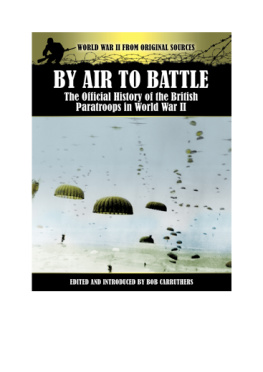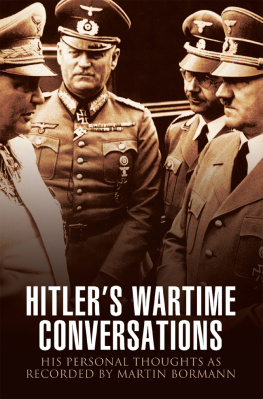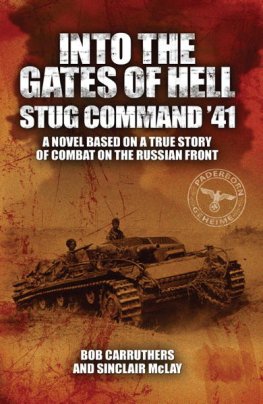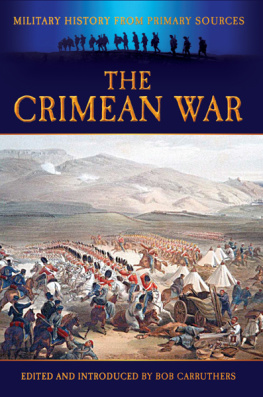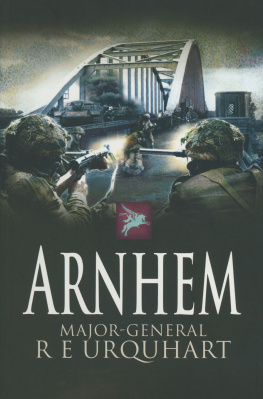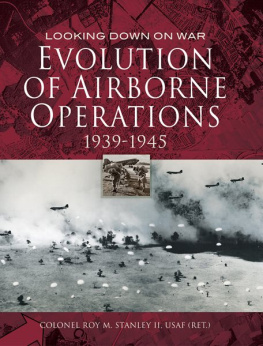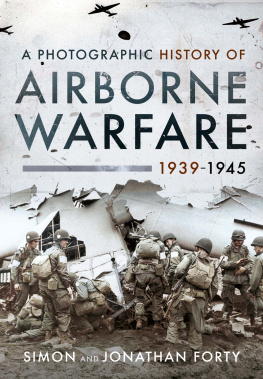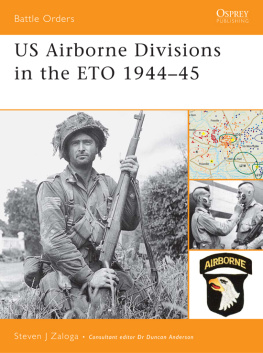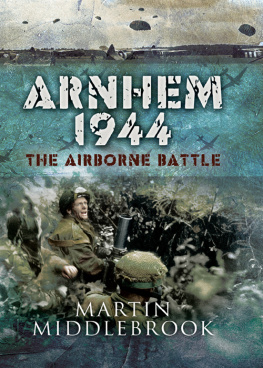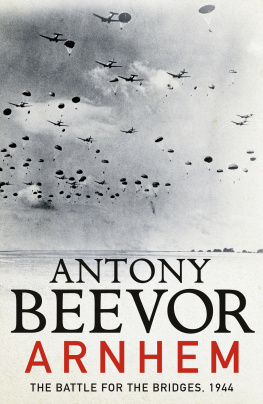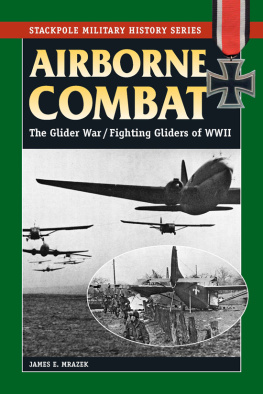First published in 1945 and comprising a compilation of fascinating primary accounts of airborne combat as told by the very men who fought in the action, By Air to Battle is the official history of Airborne operations by British Paratroops in World War II. Spanning the introduction of the Central Landing Establishment to the end of the war, we follow the heroic exploits of the British First and Sixth Airborne Divisions. Never before available in ebook form By Air to Battle is an inspiring and at times very comic description of the true events that took place at such historic conflicts as Arnhem, the Rhine, Normandy and Bruneval as well as the Airborne forces in North Africa, Sicily and Italy. This is a must-read for any military history enthusiast.
1. THE WONDERFUL AIR OF DAWN
A few minutes after one oclock in the morning of June 6th, 1944, Monsieur Georges Gondre, a Norman innkeeper, was awakened by his wife. At that time we slept, he explained, in separate rooms ; not because we wanted to, but because that was the best way of preventing German troops from being billeted upon us. She said to me, Get up. Don t you hear whats happening ? Open the window. I was sleepy and it took me some little time to grasp what she meant. She repeated, Get up. Listen. It sounds like wood breaking I opened the window and looked out.
The window which Gondre opened was on the first floor of a caf on the outskirts of Benouville, a village in Normandy. It is situated a few yards from the western end of the steel swing bridge which there crosses the Canal de Caen and which by decree of the French Government will always be known as Pegasus Bridge. It was moonlight, he continued, but I could see nothing, though I did hear snapping and crunching sounds.
A German Sentry was standing at the bridgehead a few yards away, and Gondre, whose wife is an Alsatian and speaks excellent German, suggested that she should ask him what was happening. She leant out of the window and did so, while her husband observed his face, clearly visible in the moonlight. His features were working, his eyes wide with fear. For a moment he did not speak, and then saw that he was literally struck dumb by terror. At last he stammered out the one word Parachutists.
What a pity, said the wife to her husband, those English lads (gars) will be captured, for they both thought at that moment that what the sentry had seen was the crew of a bomber baling out. Almost immediately firing broke out and tracers began to flash across the night sky. Having two small children, the Gondres took refuge in the cellar, where they remained for some time listening to the spasmodic sounds of battle outside. Presently there was a knock on the front door and a voice in German called on them to leave the caf and walk in front of German troops. This German version of Dilly dally, come and be killed did not appeal to them and they remained where they were until Madame Gondre, clad only in her nightdress, and shivering with cold, urged her husband to go up and see what was happening. Gondree did so. I am not a brave man, he said, "and I did not want to be shot, so I went upstairs on all fours and crawled to the first-floor window. There I heard talk outside but could not distinguish the words, so I pushed open the window and peeped out cautiously.... I saw in front of the caf two soldiers sitting near my petrol pump with a corpse between them.
Men with coal-black faces
Somewhat unnerved by this sight, Gondre could not clearly understand the reply of the soldiers to his hail in French, but he thought one of them said : Arme de lair, and the other English flieger. I still thought, his account goes on, that they belonged to the crew of a crashed bomber, but I was worried by the clothes they had on and also by the fact that they seemed to be wearing black masks. This was scarcely reassuring, but the innkeeper, mindful of the danger in which he and his family appeared to stand, determined to continue his investigations. He went to another window, this one giving on to the canal bank which runs at right angles to the road crossing the bridge. Peering out, he saw two more soldiers who lifted their weapons and pointed them at me. By then there were a number of flares burning in the sky, so that I could see quite plainly. One of the soldiers said to me, Vous civile? I replied Oui, Oui, and added something else which I dont remember. The soldier answered, Vous civile? and after a moment I realised that these were the only words of French he knew. I was for twelve years a bank clerk in Lloyds Bank in Paris and I therefore speak good English, but I did not wish to let that fact be known at that moment, for I was not sure who they were. One of them then put his finger to his lips and gestured with his hands to indicate that I should close the shutter. This I did and went back to the cellar.
Nothing more happened for some time till the Gondres heard sounds of digging in their vegetable garden outside. They looked through a hole in the cellar and there was the wonderful air of dawn coming up over the land. Vague figures were moving about. They seemed peaceful enough, and to Gondres astonishment I could hear no guttural orders, which I always associated with a German working-party. I turned to my wife and said : Ils ne gueulent pas comme dhabitude. The light grew stronger and I began to have serious doubts whether the people I could see were in fact the crew of a bomber ; their behaviour seemed to me to be very strange. I told my wife to go to the hole in the cellar, listen and tell me if they were speaking German. She did so and presently said that she could not under-stand what they were saying. Then I in my turn listened, and my heart began to beat quicker for I thought I heard the words all right.
Presently there were further sounds of knocking, and this time Gondre opened the door, to be confronted by two men with coal-black faces. He then realised that it was paint, not masks, which they were wearing. They inquired in French whether there were any Germans in the house. He answered no and brought them in to the bar and thence, with some reluctance on their part, which he overcame by smiles and gestures, to the cellar. Arrived there, he pointed to his wife and two children for a moment there was silence ; then one soldier turned to the other and said Its all right, chum. At last I knew they were English and burst into tears.

